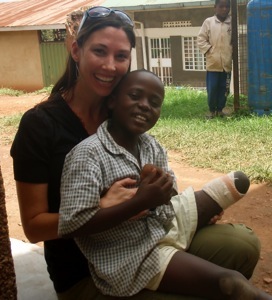In the early summer of 1989, on a humid night, as China erupted on the other side of the world, in the John F. Kennedy Presidential Library, I sat with several hundred other people, eating peppermint stick ice cream, listening to a woman from Pakistan talk about democracy as a moral force.
She was 35. She was Pakistan’s Prime Minister. She was a Harvard grad. I knew little about her when I sat down to dinner. I was a lowly intern working in Sen. Edward Kennedy’s office. Along with the other interns I got an unexpected seat at the dinner after our ushering duties were through.
But as I listened that night to this woman who really, really loved her peppermint stick ice cream (from a place in Cambridge called Brighams), I felt like I was hearing a political prophet.
She talked about being a former political prisoner not to engender pity or good will
but to remind us that democracy is precious and never to be taken for granted. And she proposed something that night – an association of democratic nations that would fight for democracy. Fight not with arms and with bloodshed and by taking political prisoners, but fight with foreign aid and fight with teams of foreign observers who would report on the condition of democracies and fight with economic sanctions.
She said she had heard that Muslim countries cannot have a working democracy. Then she paused. She stepped back from the podium and held out her arms and said that we should look at her. “I stand before you,” I recall her saying, “as a Muslim woman, the elected prime minister of 100 million Muslims, and a living refutation of such arguments and notions.”
She quoted from a Pakistani poet that night – I don’t recall the poet’s name but I wrote down the quote, “Life is reduced to a rivulet under dictatorship. But, in freedom, it becomes a boundless ocean.”
I’ll never forget that night. Benazir Bhutto reminded me, an international student, why I was in college, why I was studying, why I wanted to make a difference in the world. I wanted to take the kind of stand for freedom and for democracy that she took. It seemed that would be a life worth living. She proved, to the end of her days, that it was.
More from Beliefnet and our partners

